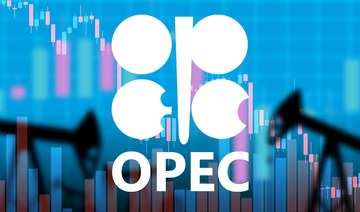RIYADH: The Gulf Cooperation Council aims to reduce reliance on oil revenues by implementing a comprehensive vision for economic diversification, as emphasized by its Secretary-General, Jasem Al-Budaiwi.
During the Gulf Creatives Conference, organized by the Diwan at Harvard University in Cambridge, Massachusetts, Al-Budaiwi outlined a vision that embraces diverse sectoral reforms. These initiatives are aimed at strengthening economic resilience and attracting foreign investments, the Saudi Press Agency reported.
He noted GCC countries have positioned themselves as competitive digital hubs on the global map, supported by their favorable geographic location and young population.
“The strategic location, coupled with robust infrastructure, paves the way for the council member states to attract international partnerships that support their long-term development goals,” Al-Budaiwi said.
He added: “This dynamic approach is vital for sustaining economic growth and ensuring the resilience of Gulf economies in the face of global economic fluctuations and regional challenges.”
Additionally, Al-Budaiwi emphasized the numbers and data supporting these plans and showcased the advancements made by GCC nations, including the establishment of the Customs Union, the GCC Common Market, and the Unified Economic Agreement. He cited Saudi Arabia’s NEOM project as an example of urban development initiatives within GCC nations.
He explained that smart cities are designed to reduce waste, enhance energy efficiency, and streamline urban management by leveraging artificial intelligence and the Internet of Things.
He continued by stating that this further underscores the GCC nations’ commitment to technologically advanced and environmentally friendly urban design, as well as the increased emphasis on cybersecurity to mitigate growing risks and maintain confidence in the digital economy.
Moreover, Al-Budaiwi emphasized the transition from oil-dependent to diversified economies and expressed satisfaction with the outstanding economic and integration achievements of the GCC countries.
In February, he held a series of meetings in Riyadh with foreign ambassadors to Saudi Arabia.
Al-Budaiwi met with the South Korean Ambassador to Saudi Arabia, Choi Byung Hyuk, at the general secretariat headquarters in Riyadh.
During the meeting, the secretary-general discussed the developments in the free trade agreement between the GCC countries and South Korea, which was signed in December 2023.
Both sides expressed their desire to enhance cooperation between nations and increase focus on mutual interests such as education, health, investment, and pharmaceuticals.
The meeting also reviewed relations between the GCC and South Korea, emphasizing the importance of enhancing strategic dialogue through the areas of cooperation outlined in the joint action plan.






















